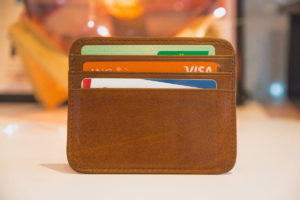People accumulate debt at various stages in their life with the hope that they will pay it off. Unfortunately, there can be many reasons – controllable and uncontrollable – because of which people are not able to repay their loans. Sometimes spending more than you earn and supplementing the rest with the credit card leads to accumulation of huge loans. Sometimes, reasons like an economic downturn and job cuts, sudden illness etc. cut off the primary source of income for a while which leads to debt accumulation.
[adsense_id=”1″]
Whatever the case may be, there are always ways by which you can repay the loans. One of the most popular ways is by applying for a consumer debt consolidation loan so that all your debts are consolidated into one loan with better terms.
Here are a few things to know before you choose a consumer debt consolidation loan:
a) Making the choice: A consumer debt consolidation loan basically takes all your small loans, makes them one big amount, and you need to pay this back through monthly installments. Check how many bills you have and how much you need to repay before choosing the loan.
b) Do not default: Consumer debt consolidation loan does provide you a relief by clubbing all your debts into one single loan at more attractive/suitable terms for you; however, you must ensure that you don’t default on your monthly payments otherwise your debt situation will just worsen.
c) Prevent future debt build-up: We take credit cards with the intention of using them wisely and paying the bills. What happens in some cases is quite different. Understand the root of the problem before you take on a consumer debt consolidation loan. This is because if you don’t identify and control the root cause of your debt problems, the customer debt consolidation loan will just be a temporary relief which will leave you in jeopardy later.
Types of consumer debt consolidation loans
1. Unsecured debt consolidation loan: Personal unsecured debt consolidation loan is one which is given without collateral. This basically means that the creditor is giving a loan without anything to fall back upon. The catch here is that the loan is given only to people with excellent credit scores and the interest rates are moderately high.
2. Home equity loan: The home equity loan is one of the most popular strategies for debt consolidation. If you take a home equity loan, all your unsecured debts become secured. This means that the person lending money to you has something to fall back upon if you don’t repay. This will certainly offer lower interest rates as the loan is secured. The disadvantage to this is that if you fail to repay this loan, your home will be at risk and that is a huge cause for concern.
3. Transfer loans to one credit card: Most people use more than one credit card and banks give them away generously. If you have high balances on your credit cards you need to repay, it is advisable to consolidate all the balances that need to be repaid into one credit card. Keep note of the credit line here, because you might need to use more than one credit card to consolidate the balances. The other important thing to note is that you should transfer the balance to the credit card that offers the least interest on the balances. It is essential to keep the transfer rate, credit balance and the expiration time in mind too.
Consumer debt consolidation comes with its advantages and disadvantages and one must be completely aware of these before taking the plunge.

Your post has good information on consumer debt consolidation, thanks for sharing.
Great post! A number of your articles on debt consolidation have helped me a lot. Look forward to reading more from you in the future.
I work as a credit counselor and even I’m learning stuff here on your site about personal finance and debt! Thanks so much mate! Keep the posts coming!